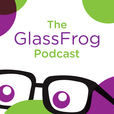
Summary: Welcome back! This may surprise you, but, despite our girlish good looks and youthful dispositions, we aren't spring chickens. It's been a while since we were in school and we're a little out of touch with what young people are learning these days. Since today's students are tomorrow's professionals, we wanted to learn more about how our colleges and universities are training students to be evaluators. To do so, we invited a panel of evaluation professors to tell us all about their approaches to training students to be both smart consumers and producers of evaluation. Our three guests include:<br> <br> - Len Lopoo, Professor of Public Administration and International Affairs at Syracuse University’s Maxwell School of Citizenship and Public Affairs. Professor Lopoo is also the Director of the Center for Policy Research at the Maxwell School and the Maxwell X Lab, which uses behavioral science and RCTs to evaluate public and nonprofit initiatives. Professor Lopoo teaches statistics and program evaluation, in addition to other topical classes, to graduate students at the Maxwell School.<br> - Joan Stamler, Adjunct Assistant Professor at Teachers College at Columbia University. Professor Stamler teaches program evaluation to graduate students at Teachers College, though the course is open to students in other disciplines like social work. Professor Stamler worked for many years in the private sector, before going back to graduate school to earn her Ph.D. and then working in research and evaluation positions at education non-profits. <br> - Dana Wanzer, Assistant Professor at University of Wisconsin - Stout. Professor Wanzer teaches program evaluation to students in the Applied Psychology master's program at the university. (Some of these students are actually concentrating in Evaluation Research, which is exciting.) In addition to teaching and research, Professor Wanzer also has a thriving consulting practice.<br> <br> It was fun to peer back into academia, even for a short while. Our guests reinforced that there is not a single route to becoming an evaluator and that evaluators come from all disciplines and may approach evaluation in a unique way. What's more, students in evaluation classes may all go on to work in very different fields, so one of the challenges is to give students a flexible but comprehensive skill set that can be applied across different settings. Our guests felt that building interpersonal skills, as well as giving students a sense of what evaluation, how it can be used, and why it's valuable, are crucial. <br> <br> Thanks again for joining us. Our next episode is the Season 2 finale and we'll be talking to our friend Pau Aragay Marin, the Director of Impact & Organizational Improvement at Educo, a global NGO that acts in favor of children and the defense of their rights, whether it is in the form of education, health, or humanitarian efforts. We’ll talk to Pau about the challenge of doing evaluation across geographic boundaries, using local resources to do data collection as a collateral duty to delivering programming, and the practical challenges of using evaluation data to make improvements to programming when the organization has an international footprint. Please join us in January for this final episode!
